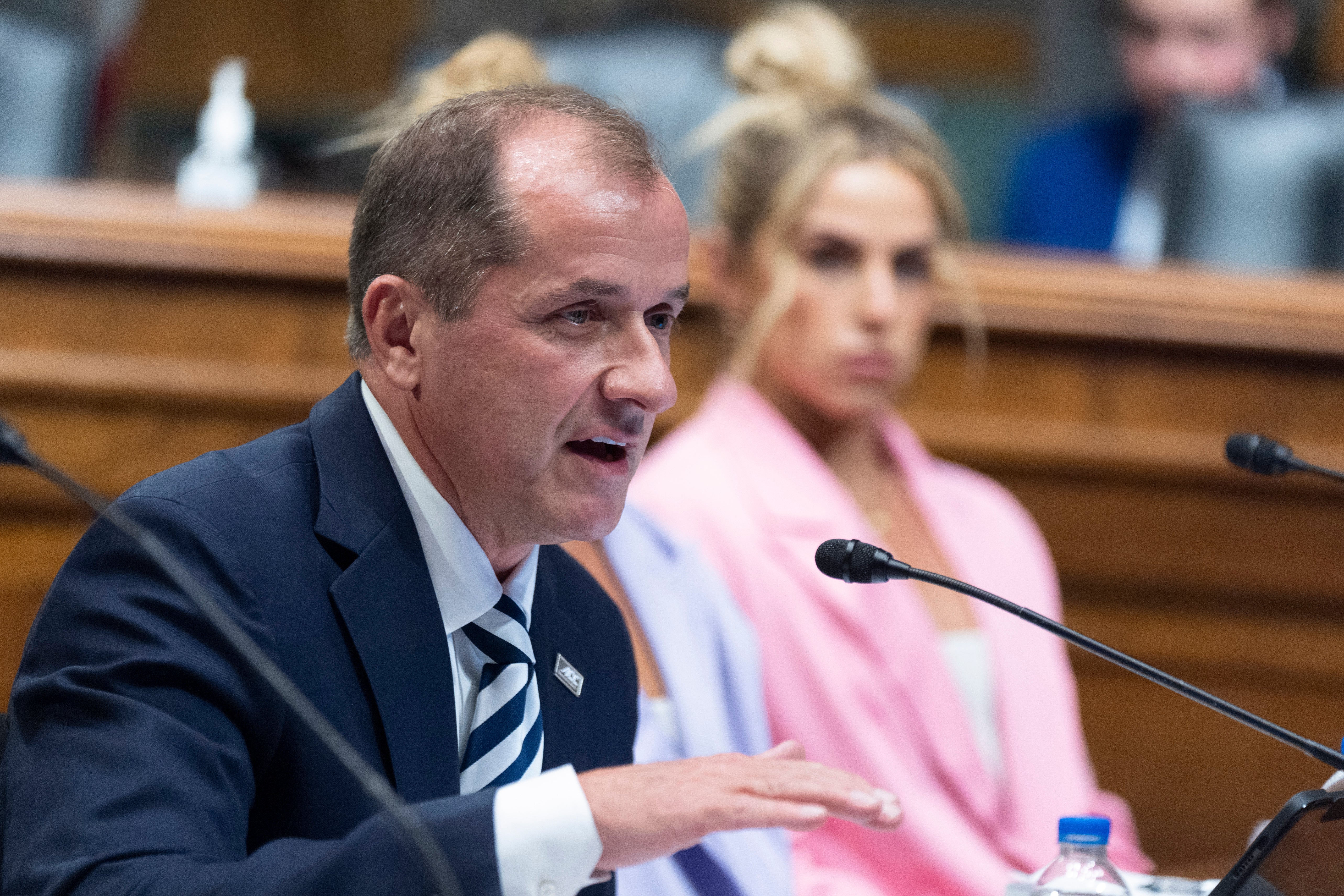Judge expects ruling on jurisdiction, broadcasting rights in ACC-Florida State fight before April 9
The Atlantic Coast Conference and Florida State squared off in a courtroom for the first time Friday, following the member school’s push to exit the conference for a more lucrative landing spot elsewhere

The Atlantic Coast Conference and Florida State squared off in a courtroom for the first time Friday, following the member school’s push to exit the conference and explore a more lucrative landing spot elsewhere.
During a four-hour hearing at Mecklenburg County courthouse, attorneys from both sides argued about jurisdiction over dueling lawsuits from last December and whether documents pertaining to broadcasting rights between the ACC and ESPN should be unsealed.
No resolution was reached Friday.
Judge Louis A. Bledsoe III indicated he would take arguments into advisement and have a written ruling on where the case should be held and whether to unseal documents before April 9 — the date Florida State’s lawsuit against the conference is scheduled to be heard in Florida.
The ACC wants the case to be heard in Charlotte, where its headquarters are located, and doesn’t want the broadcasting contract with ESPN made public. Florida State wants to move the venue to Florida and prefers the documents to be unsealed for transparency.
Attorneys for ESPN also weighed in Friday, urging Bledsoe to keep the broadcasting rights contract sealed because making them public would be financially detrimental to the sports programming network.
“FSU is arguing that North Carolina is a more favorable jurisdiction for the ACC,” said ACC attorney James Cooney. “We are not here because this is more favorable; we are here because it is the right jurisdiction.”
At the core of the case is a grant-of-rights agreement signed by league schools that transferred control of each program’s media rights to the ACC through the 2035-36 season. It means the league controls media rights for any school that attempts to leave for the duration of the contract, which is designed to deter defections since a school would not be able to bring TV value to a new league.
The ACC initially sued the Florida State Board of Trustees in North Carolina in last December, asking a court to uphold the conference's grant of rights as a valid and enforceable contract after catching wind of a forthcoming Florida State lawsuit.
Florida State's lawsuit came shortly after.
Attorney Bailey King, who is representing Florida State, said the ACC jumped the gun in a “race to the courthouse” and that lawsuit has no merit given that decision was not voted on by the league's membership committee.
“Forgive the pun, but we believe the ACC jumped offside — and that's a penalty,” King said.
If Florida State is able to get out of its agreement it would be a seismic move, both for the future of the ACC in keeping its schools together and the broader implications of contractual agreements in a time where schools are chasing leagues in search of bigger payouts.
FSU had been signaling discontent for a year about the ACC falling further behind the Big Ten and Southeastern Conference in payouts even while taking in record revenues.
That included president Rick McCullough telling school trustees in August that FSU would have to consider leaving unless there is a “radical change to the revenue distribution.”
The ACC’s revenue increased to nearly $617 million by the 2021-22 season with an average distribution of nearly $39.5 million per school for full members — Notre Dame receives a partial share as a football independent — in another year of gains. Still, that left ACC schools receiving about $10 million less per year than SEC schools — $49.9 million, according to tax documents — even though ESPN is partnered with both leagues on their respective networks.
The courtroom showdown comes just three days after Clemson, another member school, joined Florida State in challenging the ACC's right to charge hundreds of millions of dollars to leave the conference.
The complaint filed in South Carolina said the ACC’s “exorbitant $140 million” exit penalty and the grant of rights used to bind schools to a conference through their media rights should be struck down.
“Each of these erroneous assertions separately hinders Clemson’s ability to meaningfully explore its options regarding conference membership, to negotiate alternative revenue-sharing proposals among ACC members and to obtain full value for its future media rights,” Clemson said in the lawsuit.
Clemson has not indicated it is exiting the ACC and remains a member of the conference.
___
AP college football: https://apnews.com/hub/ap-top-25-college-football-poll and https://apnews.com/hub/college-football
Bookmark popover
Removed from bookmarks